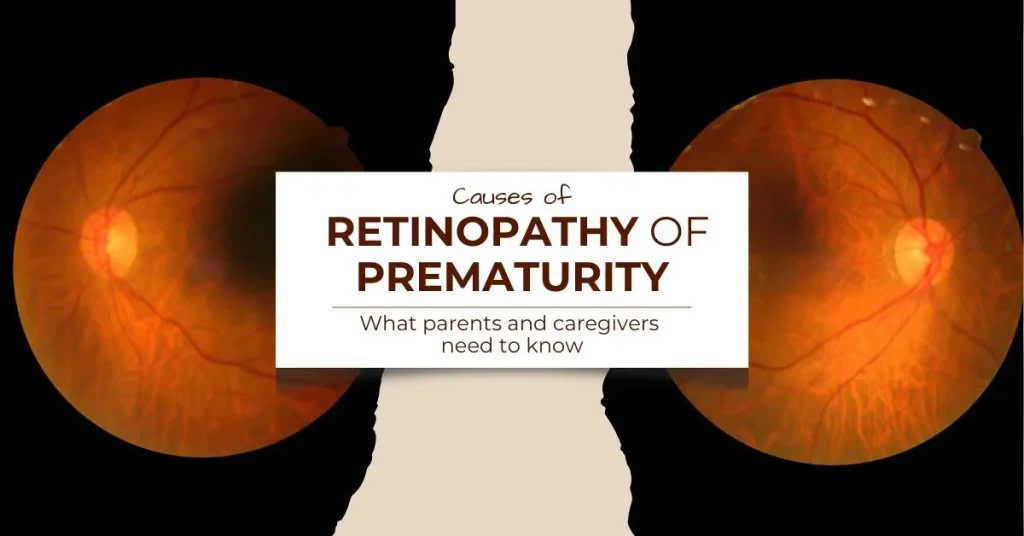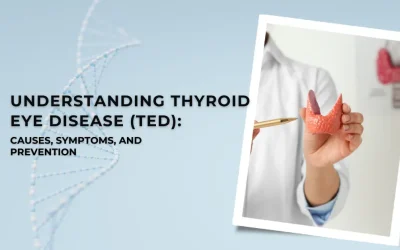Causes of Retinopathy of Prematurity: What Parents and Caregivers Need to Know

Retinopathy of Prematurity (ROP) is a significant concern in neonatology and pediatric ophthalmology, affecting premature infants and potentially leading to severe visual impairment or blindness. Understanding the causes of ROP is crucial for parents and caregivers, as it aids in prevention, early detection, and effective management. This essay explores the primary causes and risk factors associated with ROP, offering insights to help families navigate this complex condition.
Understanding ROP
ROP is a disease of the retina, the light-sensitive tissue at the back of the eye. It primarily affects premature infants, particularly those born before 31 weeks of gestation or with a birth weight of less than 2.5 pounds. The condition involves abnormal growth of blood vessels in the retina, which can lead to retinal detachment and vision loss if left untreated.
Primary Causes and Risk Factors

- Premature Birth
The most significant risk factor for ROP is premature birth. The retina of a fetus typically completes its development during the final weeks of gestation. Premature infants, born before this process is complete, are at high risk for ROP. Their underdeveloped retinas are susceptible to abnormal blood vessel growth, which can lead to the progression of the disease. - Low Birth Weight
Infants with a very low birth weight, often defined as less than 2.5 pounds (1,200 grams), are at increased risk of ROP. Low birth weight is frequently associated with early delivery and incomplete retinal development. The more premature the infant and the lower the birth weight, the higher the risk of developing ROP. - Oxygen Therapy
Oxygen therapy, commonly used to support premature infants with underdeveloped lungs, has been linked to ROP. While oxygen is essential for the survival of premature infants, excessive or fluctuating oxygen levels can disrupt normal retinal blood vessel growth. The careful management of oxygen levels is crucial to minimize the risk of ROP. - Rapid Weight Gain
Rapid weight gain in premature infants, especially during the early weeks of life, can be a risk factor for ROP. Studies suggest that swift increases in weight can lead to an increased risk of abnormal blood vessel growth in the retina. Monitoring growth patterns and ensuring gradual weight gain can help mitigate this risk. - Infection and Illness
Severe infections or illnesses in premature infants can exacerbate the risk of ROP. Conditions such as sepsis or respiratory distress syndrome can impact overall health and contribute to the development of ROP. Preventive measures and prompt treatment of infections are essential for reducing this risk. - Genetic and Environmental Factors
Genetic predispositions and environmental factors may also play a role in the development of ROP. While the exact genetic mechanisms are not fully understood, there is evidence that genetic factors may influence an infant’s susceptibility to ROP. Additionally, environmental conditions such as exposure to extreme temperatures or poor neonatal care can impact retinal health.
Prevention and Early Detection

While some risk factors for ROP are beyond control, there are strategies that can help prevent and manage the condition:
- Regular Screening: Premature infants should undergo regular eye examinations by a pediatric ophthalmologist to monitor for signs of ROP. Early detection is critical for timely intervention and treatment.
- Optimal Oxygen Management: Careful monitoring and regulation of oxygen therapy can help prevent the exacerbation of ROP. Neonatologists and medical staff work to maintain appropriate oxygen levels to support retinal health.
- Supportive Neonatal Care: Comprehensive neonatal care, including infection prevention, gradual weight gain, and overall health management, contributes to reducing the risk of ROP.
Conclusion
Understanding the causes of Retinopathy of Prematurity is vital for parents and caregivers in managing and preventing this serious condition. Premature birth, low birth weight, oxygen therapy, rapid weight gain, and infections are primary risk factors contributing to ROP. By focusing on early detection, optimal care practices, and supportive neonatal environments, families can play a crucial role in mitigating the impact of ROP and supporting their child’s visual health. With awareness and proactive measures, the challenges of ROP can be effectively managed, offering hope for improved outcomes and a better quality of life for affected infants.
Book your appointment now for all eye-related services.
Your Vision Our Focus


